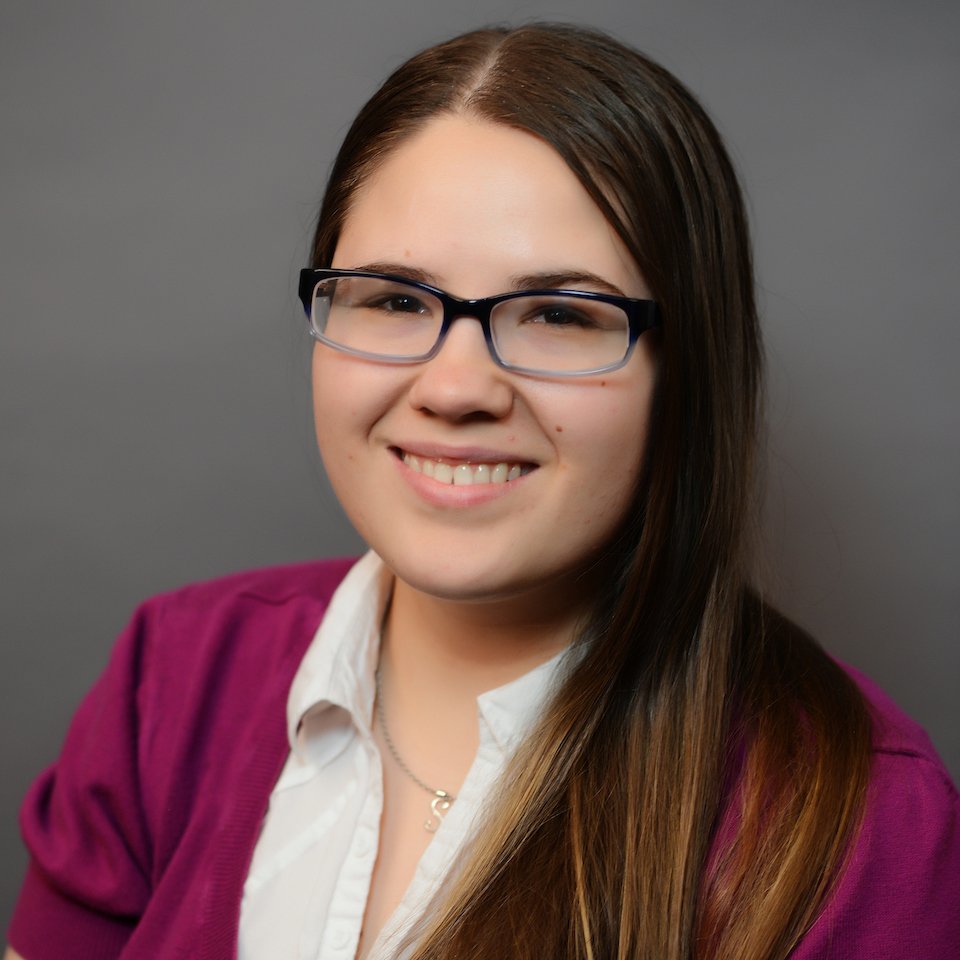
Insight By Booz Allen Hamilton
Designing a reliable digital workforce in government
Speed and strategy are becoming even more important for government agencies to keep up with advantages in technology and intelligence
Speed and strategy are becoming even more important for government agencies to keep up with advantages in technology and intelligence
Advances in technology and data collection continue to push agencies past their limits – all the more important for the private and public sector to add new skillsets to their digital workforce. On this episode of Women of Washington, host Gigi Schumm welcomed female executives to discuss how the atmosphere is changing and what their agencies are doing to keep up.
The guests include Renee Wynn, chief information officer at NASA, Dorothy Aronson, chief information officer of the National Science Foundation, Vicki Hildebrand, chief information officer of the Transportation Department, Dr. Kelly Fletcher, acting chief information officer at the U.S. Navy and Julie McPherson, senior vice president of Booz Allen.
McKinsey, a global management and consulting group, released a report in November detailing the good news/bad news situation surrounding the current digital workforce. The report estimated the United States could save at least $3.5 trillion a year if it was to match the productivity gains other countries have made.
Regulations and scarce funding place some barriers on development, but agencies relying too much on legacy systems and a lack of digital talent are more to blame.
“[It’s] the same [issue] the government has always had for decades,” Wynn said. “That is recruiting the right talent for the position, and I think that begins with the hiring official at first.”
NASA has been using a variety of different platforms to recruit a diverse range of talented officials with the skills needed to fill its positions. Wynn said the success rate comes from considering future needs.
“As long as we don’t fill a position with just today in mind, it can allow the federal government to begin making the advances necessary one position at a time,” she said.
Transportation’s Hildebrand said it’s not just the recruitment of talented individuals, but also making sure an agency is forward-thinking in terms of technology and software development.
“One of the challenges is … to not be catching up, but to actually think beyond that and think about leapfrogging what technologies are on the horizon and who’s looking at them and how we can investigate those,” Hildebrand said. “There’s no such thing as a 5-year plan in the world of IT.”
Booz Allen’s McPherson said inviting contractors and new talented employees from the private sector can be a major plus. “We’re able to see new solutions emerge in the way that we do work because the technology has changed so dramatically and that’s exciting when you blend both [private and public] perspectives and problem solving,” McPherson said.
The contracted staff allows agencies to hire the digital talent they need on a project-to-project basis.
While contractors are important and help fill talent gaps, Hildebrand said acquiring more intellectual property and more federal workers with the same skillsets could also help save time and money and allow agencies to outsource less contracted work.
The Navy is doing its part to upgrade the digital workforce by putting more dollars into buying IT as a commodity, Fletcher said.
“We really want to modernize our legacy systems. We can host them commercially [and] we can take advantage of the benefits of moving to commercial,” she said.
The panelists agreed that upgrading to more modern systems and software is another way the federal workforce can grow digitally. However, in an agency such as NASA, not all of the systems have that upgrade potential.
“There are legacy systems that we need to keep because those are the operating systems for satellites that have been launched … back in the 60s,” Wynn said. “Plus, they’re capturing some pretty amazing scientific data.”
Strategy and speed are two solutions all five women said are possible to help design a better digital workforce. Building better techniques and more advantages in mobile software and applications will help both the private and public sector.
Agencies must train themselves to think outside of the box and to not rely on the same skills they used to solve problems in the past.
“If we can get solid leadership, support governance and focus our attention and then engage the workforce’s hearts in accomplishing the mission … the more creative ideas will come to the group,” NSF’s Aronson said.
“I find our group can move very quickly if they know where they want to go.”
Host
 Gigi Schumm, Host of Women of Washington, Federal News Radio
Gigi Schumm, Host of Women of Washington, Federal News Radio
Gigi Schumm is host of Women of Washington on FederalNewsRadio.com and 1500 AM. Women of Washington is a weekly radio program that features interviews with Washington D.C.’s ambitious and influential female executives – role models for the next generation Washington leader. Every week, Schumm interviews the most accomplished women in Washington, who share their life lessons and secrets to success.
Panelists
 Renee Wynn, Chief Information Officer, NASA
Renee Wynn, Chief Information Officer, NASA
Renee P. Wynn is the NASA Chief Information Officer. Wynn joined NASA in July 2015 as Deputy Chief Information Officer. She came to NASA from the Environmental Protection Agency where she had served as the Acting Assistant Administrator for the Office of Environmental Information since July 2013. Ms. Wynn has 27 years of federal service. She was with EPA for more than 25 years, and joined the Office of Environmental Information in April 2011. Beyond the experience she gained since joining the information management and technology arm of the Agency, Ms. Wynn served in EPA’s Office of Solid Waste and Emergency Response and the Office of Enforcement and Compliance Assurance.
Ms. Wynn has managed program administration for science, information management, and international programs; regulatory management; budget formulation and execution; contracts, grants and interagency agreements; long term strategic planning and analyses; and environmental and administrative policy.
Ms. Wynn holds a Bachelor of Arts in Economics from DePauw University, Indiana
 Dorothy Aronson, Chief Information Officer, National Science Foundation
Dorothy Aronson, Chief Information Officer, National Science Foundation
Recently named the Acting Chief Information Officer for the National Science Foundation, while also acting as the Director for the Division of Information Systems within the Office of Information and Resource Management, Ms. Aronson is uniquely positioned to effect positive change and build upon years of foundational IT Governance groundwork already in place. In her role as the Director for the Division of Information Systems since 2011, Ms. Aronson also acted as the NSF Deputy CIO, facilitating the linkage of mission and strategy to IT tools which enable the Foundation to manage the full lifecycle of proposals and awards. Ms. Aronson is a highly skilled and gifted creative thinker, strategist, and artist; and, was recognized in 2013 as one of the FCW Fed 100 for her mastery of innovation and for her ability to effectively engage her staff around a common vision for cutting-edge IT in support of NSF-funded cutting-edge research. Ms. Aronson’s deep understanding of IT, coupled with her commitment to the NSF mission, its employees and to the American taxpayer, have been instrumental in her ability to manage an organization of over 300 talented IT innovators who feel equally engaged, connected, and empowered to find creative solutions to IT’s most challenging dilemmas. Prior to her time at NSF, Ms. Aronson served as the Director for the Office of Management Operations for the Defense Advanced Research Project Agency. She holds a Business degree from Duke University and is committed to lifelong learning.
 Vicki Hildebrand, Chief Information Officer, Department of Transportation
Vicki Hildebrand, Chief Information Officer, Department of Transportation
Vicki Hildebrand was named Chief Information Officer (CIO) of the U.S. Department of Transportation by United States Department of Transportation Secretary Elaine L. Chao. As the CIO, she is the principle advisor to the Secretary on all information technology related matters.
Prior to her position at the Department of Transportation, Vicki served as the Vice President for Customer& Partner Advocacy at Hewlett Packard Enterprise (HPE), a relatively new function in the industry. She leveraged her extensive technology background to empower HPE Account Leaders and Executives with actionable insights to help drive new business value and form lasting customer relationships.
Vicki’s career includes over three decades at Hewlett-Packard. Her experience includes management of R&D, Software Development, Operations and Support, Architecture, Program Management, and Acquisition Integration.
She was the Senior Director and Chief of Staff for Global Business Services, an 18,000 person organization that managed HP’s common services. She has also led various enterprise level programs across Hewlett Packard Company, from the first rollout of the HP-UX server platform to the consolidation and transformation of HP’s 200+ Marketing applications, including HP.com and @hp. She led the Marketing IT development teams through the acquisition of Compaq and EDS.
Vicki holds a Bachelor of Science degree in Electrical Engineering from the University of Vermont and a Master’s degree in Technology Management from Columbia University, with a focus on Digital Transformation.
She recently led the College of Engineering Board of Advisors at the University of Vermont for 10 years, and is a National Figure Skating Judge after several years as a competitor and coach.
Vicki and her husband have two adult sons.
 Dr. Kelly Fletcher, Acting Chief Information Officer, Department of the Navy
Dr. Kelly Fletcher, Acting Chief Information Officer, Department of the Navy
Dr. Fletcher serves as the Principal Deputy Chief Information Officer for the Department of the Navy. In this role, she provides strategic guidance and direction to the DON CIO’s functional teams of Cybersecurity, Information Technology Analysis & Internal Controls, Enterprise Infrastructure, Privacy & Information Sharing, and Strategic Spectrum Policy. Dr. Fletcher leads the development of policies, plans, architectures and standards to achieve security, interoperability and information technology business transformation consistent with the Department’s goals and mission. To realize these objectives, she collaborates with Secretariat, Navy and Marine Corps leadership.
Dr. Fletcher was appointed to the Senior Executive Service in December 2016. Prior to her selection as the Principal Deputy CIO, she served as the Special Assistant to the Deputy Director for Program Evaluation in the Office of the Secretary of Defense (OSD) Cost Assessment and Program Evaluation (CAPE). She coordinated activities both internally and with Deputy Secretary of Defense staff in support of the Department of Defense FY18-22 budget.
From 2011 to 2015, Dr. Fletcher served as an Operations Research Analyst in the Command, Control, Communications and Computers (C4) and Information Programs Division at OSD CAPE. In this role, she led DoD-wide teams developing information technology system, infrastructure and cybersecurity resourcing options for the Deputy Secretary of Defense. Her teams impacted over $1B of information technology resources in a single budget cycle.
Prior to joining the Department of Defense, Dr. Fletcher worked as an Environmental Engineer at URS Corporation and earned a Ph.D. from Georgia Institute of Technology in Civil and Environmental Engineering, coauthoring more than 10 peer-reviewed articles. Dr. Fletcher received a B.S. degree in Civil Engineering from Washington University in St. Louis.
 Julie McPherson, Senior Vice President, Booz Allen Hamilton
Julie McPherson, Senior Vice President, Booz Allen Hamilton
Julie McPherson is a Senior Vice President in Booz Allen Hamilton’s Strategic Innovations Group, where she leads the firm’s Digital business focused across the civilian markets. For Digital, Julie develops and deploys modern digital solutions to evolve the way missions are executed and both citizens and workforces operate. Julie and her team focus on Digital Strategies and User Experiences, Modern software developments and Cloud and data platforms. She also drives the firm’s functional strategy to scale, deepen, and retain Digital talent through affiliation and development programs.
In her current role, Julie leads several technology and transformation initiatives, including:
- Implementation of large-scale technology programs in support of the Federal Drug Administration’s regulatory programs.
- Development of a data hub to support the evaluation of new models of Healthcare.
- Modernization of the largest grant making agencies technology platform.
Previously, Julie led a team to reinvigorate Booz Allen’s culture of Innovation by standing up an innovation ecosystem to make ideation and problem solving come to life across a diverse, global network of experts.
Julie has more than 20 years of experience leading IT transformation efforts across the defense and federal market and has been recognized as a top leader transforming how the government uses technology.
Julie holds a B.A. degree in Psychology from the University of Maryland Baltimore County and a M.S. degree in Management from Rensselaer Polytechnic Institute.
Copyright © 2025 Federal News Network. All rights reserved. This website is not intended for users located within the European Economic Area.






